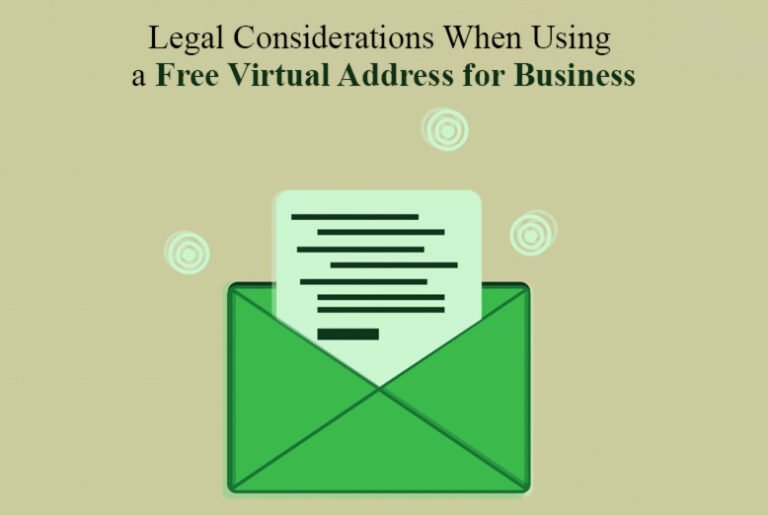When running a business, especially online or from home, many entrepreneurs look for ways to cut costs. One popular solution is to use a free virtual address for business. A virtual address can provide privacy, flexibility, and a professional image.
However, it is important to understand the legal considerations before using one to ensure you avoid potential complications.
What Is a Free Virtual Address for Business?
A virtual address allows businesses to use an address, often in a commercial area, without actually renting physical office space. Sites like physicaladdress.com provide virtual addresses.
You can use them to receive mail, which is then forwarded to you. You can choose to get it either electronically or physically. These services are attractive because they can make a business appear more professional and offer an alternative to using a home address.
However, while a virtual address has its benefits, there are legal factors you need to consider when deciding to use one for your business.
Legal Requirements for Business Registration
When registering your business, you are required to provide an official address. This address is where official mail, such as tax documents and legal notices, will be sent. A free virtual address for business may be accepted in some cases, but in others, it might not meet legal requirements.
For example, certain states require a business to list a physical address rather than a virtual one. Check local laws to ensure using a virtual address complies with your state’s business registration rules.
Mail Handling and Privacy Concerns
One main reason for using a free virtual mailbox for business is privacy. With a virtual address, you don’t need to disclose your home address, reducing security risks. However, not all virtual address providers are the same. Be cautious about who handles your mail, as sensitive documents could be at risk.
Choose a provider that securely handles and forwards mail. Free services might compromise on security, potentially causing data breaches or lost mail.
Compliance with Licensing and Permits
Some industries need special business licenses or permits. They often require a physical address. A free virtual address might not be accepted by all licensing authorities. Regulated industries like finance, healthcare, and construction may have stricter location requirements.
Before using a virtual address, verify if your permits or licenses need a physical address. Not doing so can delay or reject your application.
Legal Notices and Court Summons
Another legal concern is how a virtual address can affect receiving important legal notices or court summons. These messages need quick replies. If your virtual address is slow, you could miss important deadlines.
Some virtual address services reliably forward and scan mail. They ensure you get important documents quickly.
Tax Implications
The address you use for your business can affect your tax filings. Some tax authorities may reject a free virtual mailbox as your official business address. This could complicate tax return filings and deduction applications.
If unsure about the tax requirements of using a virtual address, consult a tax professional. They can ensure it won’t cause problems with your business taxes.
Be Cautious with a Free Virtual Address for Business
While a free virtual address for business has many advantages, be aware of legal considerations before choosing one. Ensure the service complies with state regulations and handles your mail securely.
Your virtual address must meet the requirements for business registration, licensing, and taxes. This can help avoid potential legal troubles later.
Keep on exploring! Dive deeper into our wealth of resources by checking out more articles on our blog.
Also Read: 5 great reasons for a business to be based in a virtual office



